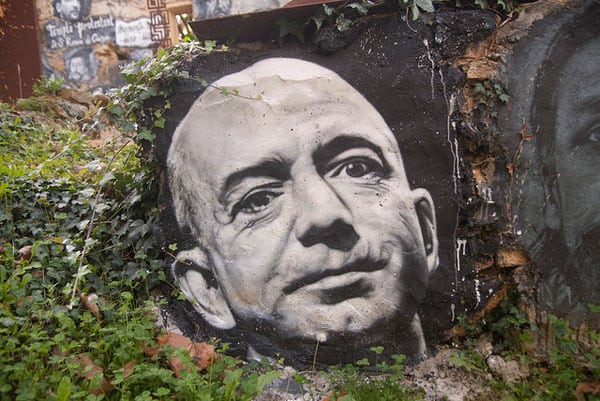
September 19, 2018; The Conversation
It appears that Jeff Bezos’s meagre $2 billion nod to philanthropy has finally woken up some of the sleeping populace. NPQ, of course, has been ringing the plutocracy alarm for longer than we care to remember, but Bezos is such a perfect symbol for the new regime! Among the many opinions we saw voiced in the press in the last few days was one in The Conversation from Ted Lechterman. We reproduce a bit of it here because it contains the phrase “tax privilege,” which so succinctly describes how we have and still are willingly handing over the kingdom.
Lechterman posits that “magnificent acts of generosity are nothing more than cunning attempts to consolidate power. Like dictators who use ‘bread and circuses’ to pacify the masses, the super-rich give away chunks of their fortunes to shield themselves from public scrutiny and defuse calls for eliminating tax breaks or raising taxes on the wealthiest Americans.” He sees Bezos’s overall behavior around taxation as par for the course in that context and undermining of democratic control. Amazon paid exactly nothing in federal taxes in 2017. So, charity to the homeless becomes ironic indeed in all of this. Lechterman writes:
Members of the public have a vital interest in being able to oversee the provision of goods and services that support their most basic needs. This kind of accountability is possible only when these needs are served by democratic governments, not rich benefactors operating in their place.
Sign up for our free newsletters
Subscribe to NPQ's newsletters to have our top stories delivered directly to your inbox.
By signing up, you agree to our privacy policy and terms of use, and to receive messages from NPQ and our partners.
And Bezos’s behavior as a businessman has raised other questions about his generosity and respect for democracy. When Amazon’s hometown of Seattle proposed to tackle runaway housing costs with a tax on the city’s largest employers, Amazon resisted. The city backed off after the company threatened to scale down its Seattle operations if the bill passed.
It may seem odd that someone who opposed a tax intended to help cover housing costs for his low-income neighbors would want to spend part of his fortune on housing. But to me it makes sense, because in my view, Jeff Bezos’s beef isn’t with his duties to help the least fortunate, but with the limits on economic power that democracy requires.
This comes in the context of the very wealthy giving an ever-larger proportion of giving in this country, as was documented in Patrick Rooney’s article advocating for a universal tax deduction. The research contained in that piece should, in this context, be truly alarming. But will anyone in this sector reject that grant for cause?—Ruth McCambridge













